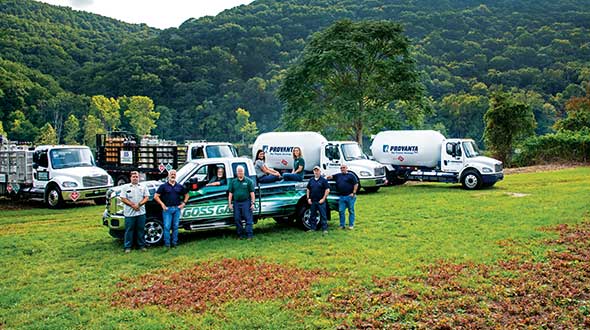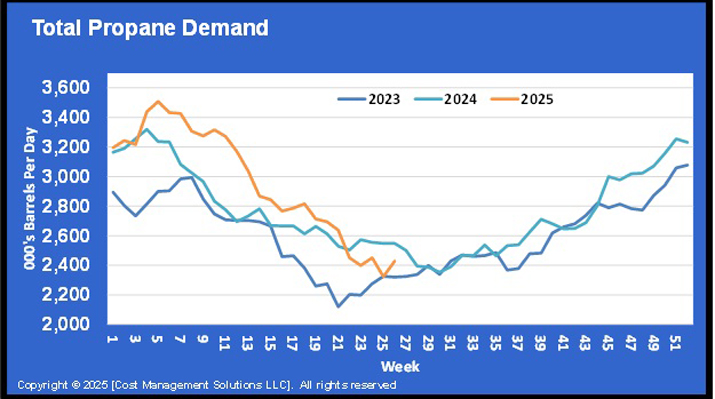LPG Spotlight: Goss Gas

Goss Gas plans to replace every diesel-powered truck with ones fueled by propane. Photo by Bright Ideas Learning Center and Photography
Goss Gas has deep roots in the industry yet remains at the forefront of up-and-coming advancements in propane usage.
The family-owned and -operated Pennsylvania retailer was founded more than 85 years ago as a propane and industrial gas business, and is now in its fourth generation of employees.
Around 1990, Goss Gas split into three divisions: Goss Gas Products, focused on industrial gas; Provanta Propane, its residential propane business; and RenovEx, a small cylinder production and distribution business.
In the 1970s, virtually the entire Goss Gas vehicle fleet was powered by propane. Its trucks featured gasoline engines that were field-convertible to propane, of which the retailer took full advantage.
But several years later, the company says, manufacturers removed gasoline engines from their offerings and began producing only diesel engines, resulting in a natural end to Goss Gas’ propane-fueled fleet – until about 30 years later.
In 2014, the retailer learned about the propane autogas-powered Freightliner S2G bobtail and jumped on the opportunity. In fact, Goss Gas purchased one of the first 25 ever made, the company says.
“In a sense, it’s a continuation of what we were doing a long time ago,” says Dave Goss, president of Goss Gas.
As an early consumer of the truck, Goss Gas says it experienced some initial “bugs” on the manufacturing side, but worked well with the dealership to improve the truck’s performance factors.
Since then, Goss Gas has replaced 50 percent of its 10-vehicle fleet with autogas-fueled trucks and plans to return to a full fleet on autogas when the remaining diesel trucks reach the end of their lifespans.
“We made the commitment to hang in there and see things through, and the manufacturers are getting better with the engines that they’re offering, the systems are getting better and, at this point, we’re committed to replace every diesel with a propane-powered model,” Goss says.
Several factors weighed into Goss Gas’ decision to power its own fleet with propane, including infrastructure and the associated costs.
“For a propane filling station, we could put in a dispenser and refilling station for around $20,000,” says Jeff Rivers, general manager of Goss Gas. “A very basic natural gas station, which includes a compressor, will be about a million dollars. So, from an infrastructure standpoint, the ease and the expense – or the lack of expense – for propane definitely is more beneficial.”
The company also elected to switch to autogas-fueled vehicles due in part to the environmental benefits the fuel offers when compared to diesel or gasoline.
In addition, autogas’ clean-burning properties can result in fewer maintenance needs and lower upkeep costs.
“Propane is a clean-burning fuel not only for the environment but for the trucks themselves,” explains Goss. “There’s reduced wear and tear on the normal engine components; oil changes have to be less frequent. That all equals cost savings as well.”
Goss also says propane-fueled vehicles typically go 250 miles without needing a refill – about two-and-a-half times more miles than typical natural gas-powered vehicles.
“When you look at the whole picture, I think the decision is clear that propane is the superior choice,” Goss says.
Goss Gas
Year founded // 1934
Founder // Robert Norman Goss
Owner // Dave Goss
Headquarters // Reno, Pennsylvania
Employees // 130
Bobtails // 5
Transports // 2
Annual gallons // 7 million
















